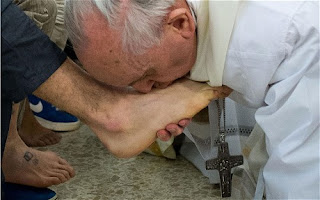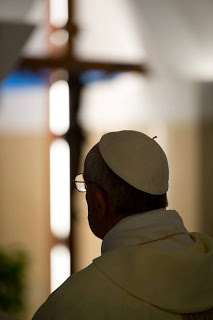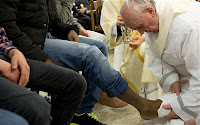[[The reforms launched by the Second Vatican Council are not behind us but ahead of us, Archbishop Piero Marini has said.
Archbishop Marini, president of the Pontifical Committee for International Eucharistic Congresses, made the comments during an address at the annual national meeting of the Federation of Diocesan Liturgical Commissions in Erie, Pennsylvania.
Archbishop Marini said he arrived in Rome in September 1965, only a few months before the close of the Council. Bishops and theologians began gathering in 1962 for the first of four three-month sessions to address more than a dozen aspects of Church life, ranging from inter-religious relations to greater lay participation in the liturgy, from social communication to relations between the Church and the modern world.
“Fifty years later, I feel a great nostalgia and a desire to understand more fully and to experience anew the spirit of the Council,” said Archbishop Marini.
Clergy, religious sisters and lay people in charge of Catholic worship in dioceses across the United States came together on October 7-12 to conduct routine business. But the larger purpose of this year’s meeting was to mark the 50th anniversary of Sacrosanctum Concilium, one of the best-known documents of Vatican II.
The week-long conference allowed participants to explore the theological principles of the document and its place in the world today. Issued on December 4 1963, the document ordered an extensive revision of worship so that people would have a clearer sense of their own involvement in the Mass and other rites.
The Constitution on the Sacred Liturgy, Archbishop Marini told the audience, was really “a matrix for other reforms” and possible changes yet to come. It is not enough, he said, to look at the written document as a manual for reforming the Church’s rites.
“It was an event that continues even today to mark ecclesial life,” the archbishop said. “It has marked our ecclesial life so much that very little of the Church today would be as it is had the council not met.”
Archbishop Marini, who was master of liturgical ceremonies under Blessed John Paul II, told the liturgists that Vatican II did not give the world static documents. In an ever-evolving culture, the Catholic liturgy is incomplete unless it renews communities of faith, he added.
“The Council is not behind us. It still precedes us,” Archbishop Marini said.
Two other archbishops attended the national meeting, co-sponsored by the federation and the US Conference of Catholic Bishops’ Committee on Divine Worship. New Orleans Archbishop Gregory Aymond, chairman of the USCCB Committee on Divine Worship, reviewed the workings of the various committees, and Archbishop Samuel Aquila of Denver spoke on the sacraments of initiation as a source of life and hope.
Also speaking was author and Scripture scholar Sister Dianne Bergant, a Sister of St Agnes, who is a distinguished professor of Old Testament studies at Catholic Theological Union in Chicago.
All speakers referred to Vatican II as only the beginning of reforms within Catholic liturgy and the Church as a whole. The traditions of the Church, Sister Dianne added, are kept alive through contemporary culture.
The best way the Church can share Jesus’s story, she said, is if it follows the lead of Pope Francis, who has opened his arms to the suffering, the outcast, the poor and the marginalised. For Jesus, there were no “outsiders”, she added, saying the church needs to rid itself of the notion that if someone doesn’t fit certain standards then they can’t be part of the faith community.. . .]]
















.jpg)







































